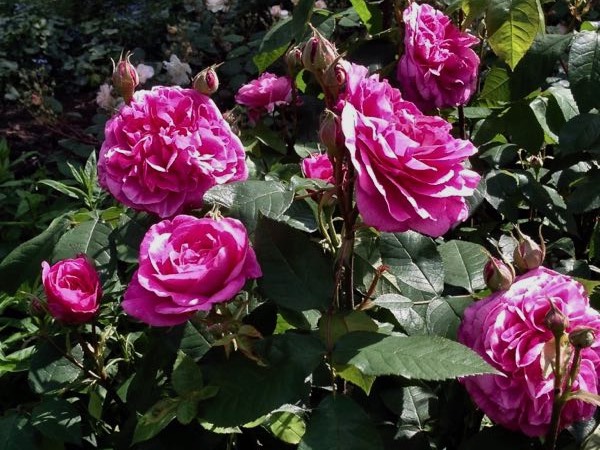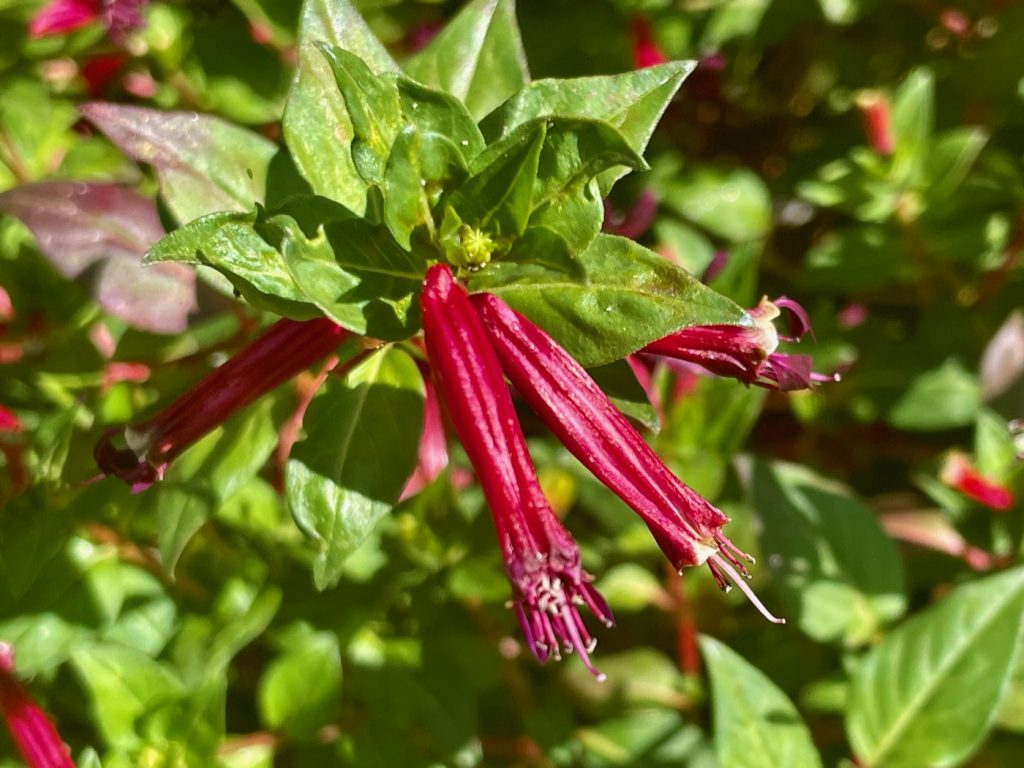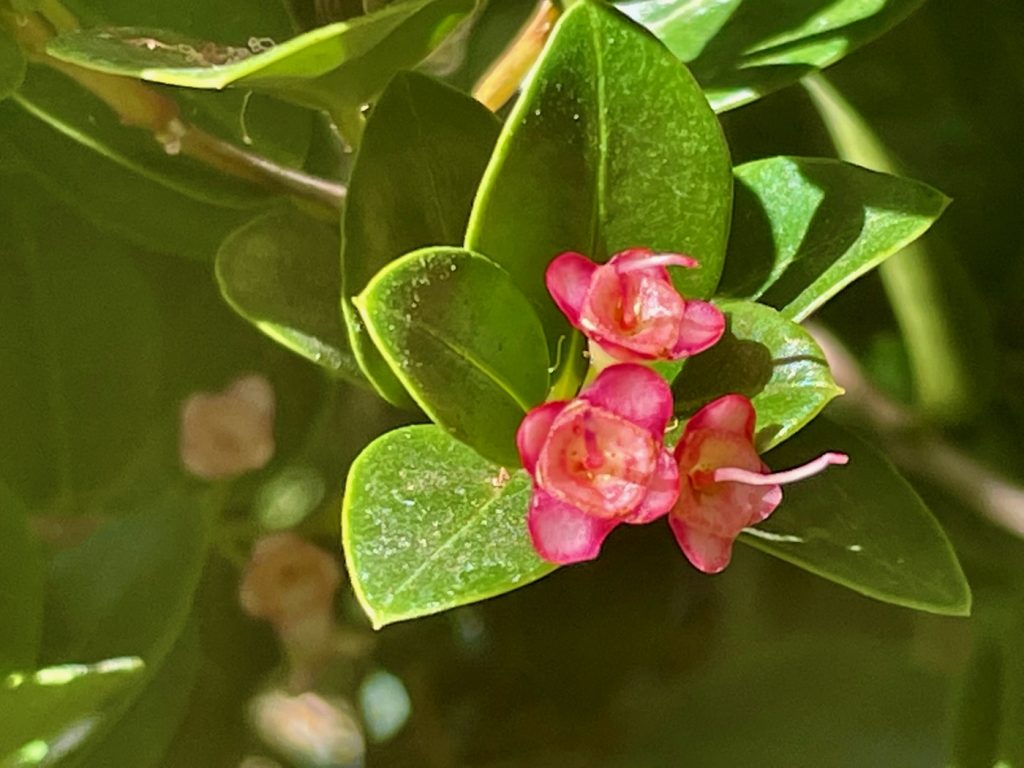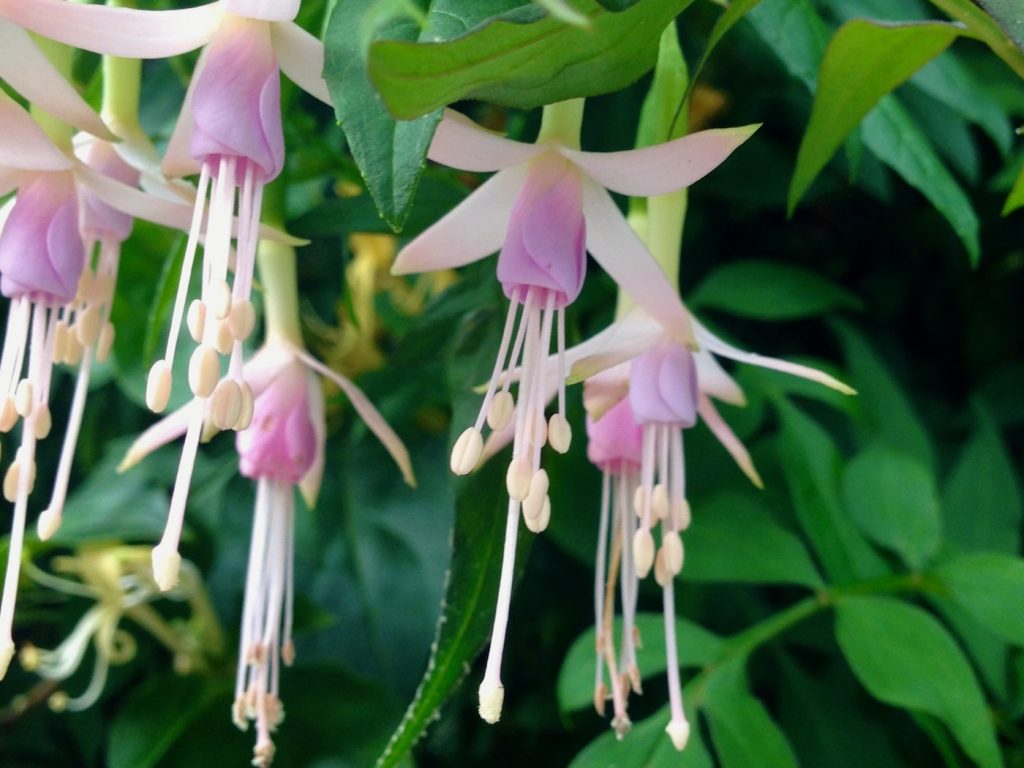Rosa ‘Harlow Carr’ is an English Shrub Rose or English Rose and part of the Rosaceae family of plants. The name is in reference to the RHS Garden in Yorkshire, UK. It was bred by David Austin and introduced in 2004.
Rosa ‘Harlow Carr’: A Fragrant Beauty Flourishing in English Gardens
Rosa ‘Harlow Carr,’ an enchanting English Shrub Rose, graces the gardens as a proud member of the Rosaceae family of plants. This exquisite rose variety draws its name from the renowned RHS Garden located in Harrogate, Yorkshire, UK. Bred by the esteemed rose breeder David Austin, Rosa ‘Harlow Carr’ made its debut in 2004, captivating gardeners with its charm and allure.
Background and Description: Also known as Rose ‘Harlow Carr’ or Rosa ‘Asuhouse,’ this mid-sized shrub rose stands as a testament to the beauty and fragrance associated with English roses. The name “Harlow Carr” pays homage to the picturesque garden, known for its immaculate beauty and horticultural excellence.
Rosa ‘Harlow Carr’ presents itself as an elegant shrub, reaching a height of approximately 4 feet or 1.2 meters. Its compact size makes it an excellent choice for gardens of various scales, where it adds a touch of sophistication and grace. From early summer through autumn, this rose variety boasts a profusion of cup-shaped, double flowers, adorned in delicate shades of pink. The blossoms exude a captivating fragrance that fills the air, delighting all who encounter it.
Cultivation and Care Rosa ‘Harlow Carr’:
To cultivate Rosa ‘Harlow Carr’ and revel in its splendor, follow these guidelines for successful growth:
- Sun and Partial Shade: Rosa ‘Harlow Carr’ thrives when provided with ample sunlight, ideally in a location that receives at least six hours of direct sunlight each day. While it can tolerate partial shade, maximizing sun exposure will enhance its flowering potential.
- Soil Requirements: This versatile rose variety demonstrates adaptability to various soil types. Whether your soil is sandy, loamy, or clay-based, ensure it is rich, fertile, and well-drained. Incorporating organic matter, such as compost or well-rotted manure, during planting can enhance soil fertility and moisture retention.
- Watering: Regular and consistent watering is crucial for the healthy growth and development of Rosa ‘Harlow Carr.’ Aim to keep the soil evenly moist, but avoid overwatering, which can lead to waterlogged conditions detrimental to the roots. Applying a layer of organic mulch around the base of the plant helps retain soil moisture and regulate temperature.
- Flowering and Pruning: Rosa ‘Harlow Carr’ generously blooms from early summer through autumn, adorning the garden with its captivating pink blossoms. Regular deadheading, the removal of spent flowers, encourages continuous blooming and prolongs the flowering season. Pruning, performed during late winter or early spring, helps maintain the shrub’s shape and vigor by removing any dead, damaged, or crossing branches.
- Disease Resistance and Pest Management: Rosa ‘Harlow Carr’ exhibits excellent disease resistance, making it a reliable addition to the garden. This variety shows a remarkable tolerance to common rose diseases such as blackspot and powdery mildew. However, it is still advisable to monitor the plant closely for any signs of disease and take necessary precautions to maintain its health and vigor.
Regular inspections of the foliage and stems allow for early detection of any issues. If signs of disease appear, promptly remove and destroy infected plant material to prevent the spread of pathogens. Applying organic or chemical treatments specifically formulated for rose diseases can help mitigate the impact and ensure the long-term well-being of Rosa ‘Harlow Carr.’
In terms of pests, this rose variety is generally resilient and less susceptible to infestations. However, it’s important to remain vigilant and monitor for potential pest activity, especially aphids and spider mites. Natural predators, such as ladybugs and lacewings, can help control these pests. If necessary, targeted treatments, such as insecticidal soaps or horticultural oils, can be employed to address pest populations while minimizing harm to beneficial insects.
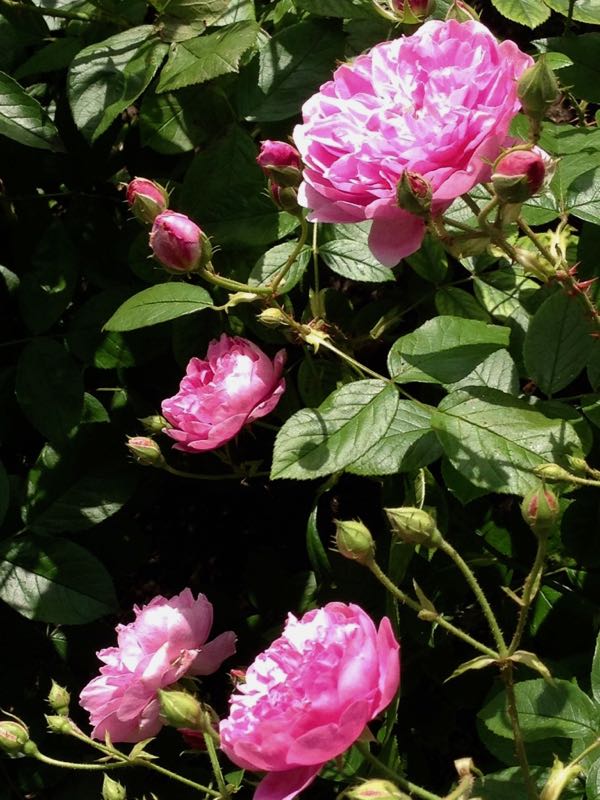
With its disease-resistant nature, ease of cultivation, and remarkable aesthetic appeal, Rosa ‘Harlow Carr’ serves as a cherished gem in English gardens, adding elegance, fragrance, and enduring beauty to any landscape. Whether planted as a focal point in a garden bed, mixed with other flowering shrubs, or trained against a wall or trellis, this exceptional rose variety continues to captivate and inspire gardeners around the world. Embrace the grace of Rosa ‘Harlow Carr’ and indulge in the timeless beauty it brings to your outdoor sanctuary.

